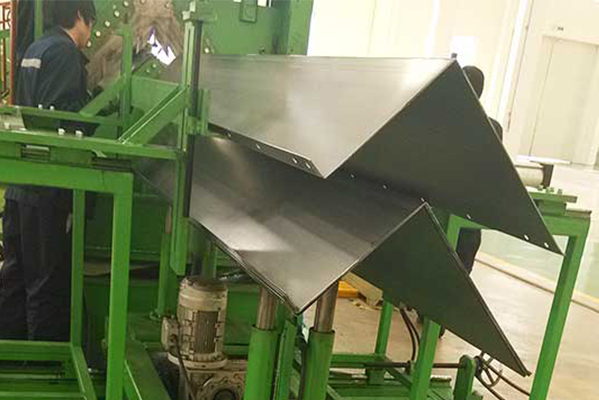Navigation Menu
Contact Us
- Email:
- info@wxavatar.com
- Address:
- Yurong Village, Yuqi Street, Huishan District, Wuxi, China.
Release Date:Jun 11, 2025 Visit:74 Source:Roll Forming Machine Factory
A steel silo roll forming machine represents a significant investment for any manufacturing operation. Ensuring its longevity and consistent performance is paramount to maintaining productivity and maximizing return on investment. This isn't achieved through chance, but rather through a regimen of diligent and well-planned maintenance practices.

One foundational aspect is regular cleaning. Dust, metal shavings, and lubricant residue can accumulate on machine surfaces, in guides, and around moving parts. If left unchecked, these can lead to abrasive wear, impede smooth operation, and even cause component damage. A routine cleaning schedule, focusing on accessible areas and internal mechanisms where debris can gather, is crucial. This extends beyond simple surface wiping; it involves dedicated efforts to remove contaminants from critical zones.
Lubrication is another cornerstone of machine longevity. Moving components, such as bearings, gears, and slides, rely on proper lubrication to reduce friction and heat. Adhering to the manufacturer's recommended lubrication schedule, using the specified types and grades of lubricants, prevents premature wear and ensures smooth, efficient movement. Neglecting lubrication can lead to increased operational temperatures, accelerated component degradation, and ultimately, breakdown.
Routine inspections are not merely about identifying problems after they arise, but about anticipating and preventing them. Regularly examining key components for signs of wear, misalignment, or damage allows for proactive intervention. This includes checking the condition of roll tooling, ensuring proper alignment of forming stations, inspecting electrical connections for integrity, and assessing hydraulic or pneumatic systems for leaks or operational irregularities. Early detection of minor issues can prevent them from escalating into major, costly repairs.
Furthermore, precise adjustments and calibration contribute significantly to the machine's lifespan. Over time, components can drift out of alignment or settings can become inaccurate. Maintaining the machine's geometric precision through periodic calibration of roll stands, cutting mechanisms, and other critical parameters ensures that it operates within its designed tolerances. This not only yields consistent product quality but also reduces undue stress on the machine's components, thereby extending their operational life.
Finally, addressing minor issues promptly is a practice that cannot be overstated. A small squeak, a slight vibration, or a minor deviation in forming can be early indicators of developing problems. Delaying attention to these seemingly insignificant issues can lead to exacerbated damage, requiring more extensive and expensive repairs down the line. A culture of immediate action on observed anomalies can save substantial resources and keep the machine operating effectively for a longer duration.

In essence, the extended operational life of a steel silo roll forming machine is a direct result of a systematic and attentive maintenance approach. By prioritizing cleanliness, appropriate lubrication, regular inspections, precise adjustments, and timely intervention, manufacturers can ensure their valuable asset continues to deliver reliable performance for many years.